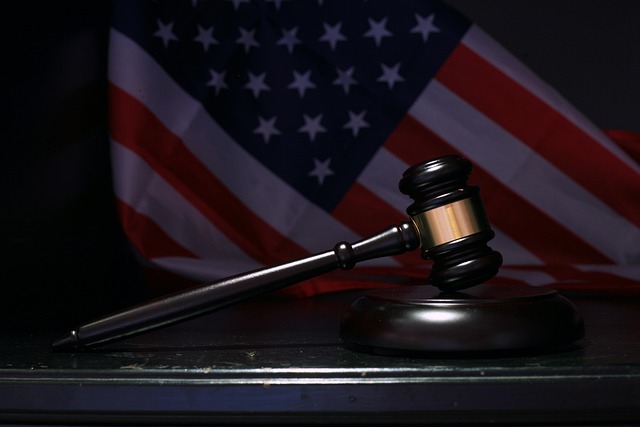RF Regulatory Agency Investigations are vital for maintaining standards in various sectors and crucial in resolving co-ownership property disputes related to RF technologies. These probes meticulously examine equipment, protocols, and practices to identify potential standard violations. Understanding this process is invaluable for criminal defenses, complex business disputes, and navigating ethical standards. Co-owners facing such disputes should consult experienced attorneys who can explore legal avenues like negotiation, litigation, or alternative dispute resolution methods while ensuring compliance with RF regulatory requirements nationwide.
“Unraveling RF Regulatory Agency Investigations: A Comprehensive Guide. This article offers an in-depth look at navigating complex regulatory matters, focusing on co-ownership property disputes and their legal implications. Understanding these investigations is crucial for businesses and individuals alike, especially when facing potential outcomes that can significantly impact operations. We explore strategic legal options, providing insights into resolution strategies for RF-related cases, including co-ownership challenges, ensuring compliance and minimizing risks.”
- Understanding RF Regulatory Agency Investigations: A Comprehensive Overview
- Co-Ownership Property Disputes: Legal Framework and Potential Outcomes
- Exploring Legal Options in RF Regulatory Cases: Strategies for Resolution
Understanding RF Regulatory Agency Investigations: A Comprehensive Overview

RF Regulatory Agency Investigations are crucial processes aimed at ensuring compliance with radio frequency (RF) standards across various sectors. These investigations play a pivotal role in maintaining the integrity of RF technologies, from telecommunications to medical devices. When disputes arise, particularly in cases involving co-ownership of property, understanding these investigations is essential for exploring legal options. The process involves meticulous examination of equipment, protocols, and practices to identify potential violations, ensuring fair competition and public safety.
In the event of a general criminal defense or complex business dispute, knowing how RF Regulatory Agencies operate can be invaluable. Co-ownership property disputes may span across different industries, necessitating a comprehensive approach. Philanthropic and political communities also stand to benefit from these investigations as they promote transparency and accountability, ensuring that businesses adhere to ethical standards. By delving into these processes, individuals and entities involved in RF-related activities can better navigate legal landscapes and explore suitable resolution paths.
Co-Ownership Property Disputes: Legal Framework and Potential Outcomes

Co-ownership property disputes can arise from a variety of situations, including differences in management styles, financial disagreements, or even personal conflicts between co-owners. The legal framework surrounding these disputes varies across jurisdictions but generally involves civil litigation where each party presents their case before a court. In many cases, the goal is to reach a settlement that fairly divides the property or establishes clear ownership rights.
The potential outcomes of such disputes can range from mediation and arbitration to full-blown trials. If a settlement cannot be reached, a judge may make a decision based on the evidence presented by both parties. For co-owners seeking legal options, it’s crucial to consult with an experienced attorney who understands the complexities of these cases. By exploring all available legal avenues, including negotiation, litigation, or alternative dispute resolution methods, co-owners can work towards resolving their differences while avoiding indictment for any unlawful actions related to the respective business interests.
Exploring Legal Options in RF Regulatory Cases: Strategies for Resolution

In RF regulatory agency investigations, exploring legal options is a strategic step toward resolution for all parties involved—especially in complex cases that span across different jurisdictions. When it comes to co-ownership property disputes related to radio frequency (RF) technologies, understanding the legal landscape becomes paramount. This often involves navigating intricate regulations and laws, requiring expertise from seasoned attorneys who can interpret these rules and advocate for their clients’ interests.
The strategies employed in resolving such high-stakes cases can vary widely depending on the specific allegations and the nature of the RF technology at play. For corporate and individual clients alike, a proactive approach includes gathering compelling evidence, conducting thorough fact-finding, and employing negotiation tactics tailored to the situation. Whether these disputes are resolved through mediation, arbitration, or litigation, the goal is to achieve a favorable outcome that respects all parties’ rights while ensuring compliance with RF regulatory requirements across the country.
RF Regulatory Agency investigations can significantly impact co-ownership property disputes, necessitating a thorough understanding of both the legal framework and available strategies. By exploring the unique challenges presented by these cases, individuals involved can navigate the process more effectively. Leveraging the right legal options, such as mediation or formal litigation, can lead to favorable outcomes in resolving co-ownership property disputes, ensuring fairness and protecting rights throughout the RF Regulatory Agency’s investigation.






